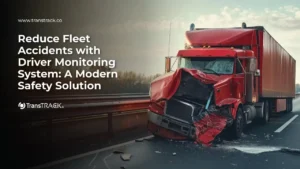Gas Coming Out of The Carburetor, See How to Fix It!
Posted on November 13, 2024 by Nur Wachda Mihmidati

Gas coming out of carburetor can be an annoying and even dangerous problem for your vehicle’s performance. When the carburetor is not functioning properly, it can lead to fuel wastage, poor performance, and even the risk of fire. Addressing this issue is a top priority for vehicle owners.
In this article TransTRACK , we will discuss the common causes of gasoline coming out of the carburetor and practical steps to resolve them. From simple treatments to more complex solutions, you’ll find out how to effectively address this issue.
Don’t let carburetor problems hamper your ride. Let’s learn together what can cause gasoline to come out of the carburetor and how to deal with it appropriately.
What Causes Gas Coming Out of the Carburetor
Many things can cause this fuel to come out of the carburetor. Here are some factors, including:
Incorrect Carburetor Assembly
If the carburetor is not assembled properly, leaks or problems in regulating fuel flow may occur.
Damage to the float needle
A damaged or worn float needle can interfere with fuel flow regulation, causing excessive gasoline to escape.
Broken Needle Valve Spring
A broken needle valve spring can cause the valve to not close properly, allowing gasoline to continue flowing into the carburetor.
Interference with the Carburetor Float
A stuck or pinched float can interfere with the normal functioning of the carburetor, which in turn can cause fuel to escape from the carburetor.
Leaking Carburetor Float
If the carburetor float leaks, the fuel will continue to flow into the carburetor and eventually out of it.
Damaged Gasoline Valve
A damaged or worn gasoline valve can cause an uncontrolled flow of fuel to the carburetor.
Excessive Fuel
If too much fuel is supplied to the carburetor, the carburetor may not be able to regulate the flow properly, allowing gasoline to escape through the carburetor.
It is important to check and repair any damaged or malfunctioning components to prevent excessive gasoline from escaping from the carburetor. In addition, regular maintenance and proper assembly are also very important to prevent this kind of problem from occurring.
How to Fix Gasoline Coming Out of the Carburetor
To solve the problem of gasoline coming out of the carburetor, you can take the following steps:
Resetting the Carburetor
Check your carburetor settings and ensure that each component is in the correct position. Readjust if necessary so that the fuel flow is properly controlled.
Replace the Inadequate Drain Hose
Make sure there are no leaks or cracks in the exhaust hose that connects the fuel tank to the carburetor. If any are damaged or in disrepair, replace them with new ones immediately.
Cleaning the float needle
Remove the float needle from the carburetor and carefully clean it with carburetor cleaning fluid. Make sure there is no dirt or scale that prevents the float needle from functioning properly.
Checking the Fuel
Check the quality of the fuel you are using. Make sure there are no impurities or contaminants in it that can cause problems with the carburetor.
Replace Good Fuel
If the fuel used is contaminated or unfit, replace it with fresh, clean fuel immediately.
Reduce Excessive Fuel
If your carburetor is receiving too much fuel, adjust the settings to make the fuel flow more controlled. This can be done by paying attention to the carburetor settings or repairing any damage that is causing excessive fuel flow.
By taking the above steps, you can solve the problem of gasoline coming out of the carburetor and ensure that the carburetor is functioning properly. If the problem is still persistent, you may need to check further or consult a skilled mechanic.
Impacts If The Problem is Not Addressed Immediately
The problem of gasoline escaping from the carburetor not only causes inconvenience in driving, but can also have serious repercussions if not addressed immediately. It is important to understand the consequences of allowing this problem to continue, as damage to vehicle components can affect performance and even safety. Here are some of the impacts that can occur if the problem of gasoline coming out of the carburetor is not addressed immediately.
1. Engine Damage
- Fuel Buildup: As gasoline continues to flow out of the carburetor, fuel can build up in the combustion chamber or combustion line. This can lead to incomplete combustion, which can eventually damage engine components such as pistons, piston rings, and valves.
- Loss of Engine Power: Engines that are constantly exposed to excess fuel tend to lose power and performance, and may even stall while driving, reducing comfort and safety on the road.
2. Fire Risk
- Gasoline Leaks: Gasoline spilling or leaking from the carburetor can get onto hot engine parts, potentially starting a fire. Given the highly flammable nature of fuel, fuel leaks can pose a very serious fire risk, whether the vehicle is running or parked.
- Spread of Fire: If gasoline leaks and hits other parts of the vehicle, the fire can spread quickly, potentially damaging the vehicle completely. Vehicle fires are dangerous for both drivers and passengers.
3. Wasteful Fuel Consumption
- Fuel Wasting: When gasoline flows out uncontrollably, the engine requires more fuel to function. This causes the vehicle to be very wasteful in fuel consumption, which increases long-term operating costs.
- Economic Loss: Not only does it cause damage to the engine, but constant fuel wastage can also be bad for your budget, as the vehicle becomes fuel inefficient.
4. Decrease in Vehicle Performance
- Unstable Vehicle: Unstable and excessive gasoline flow may cause the air and fuel mixture settings to be suboptimal. As a result, the vehicle may experience symptoms such as loss of power, poor acceleration, or an unresponsive engine.
- Rough Engine Symptoms: An engine that receives too much fuel can make the combustion process not smooth, resulting in a rough shaking engine or even a sudden stop in the middle of a trip.
5. Other Component Damage
- Blockages in the Combustion System: Spilled or leaked fuel can enter other combustion systems, causing blockages or damage to components such as spark plugs and fuel injectors.
- Electrical Short Circuit: Gasoline leaks can also cause short circuits in the vehicle’s electrical system, especially if gasoline gets on the vehicle’s wiring or electronic components, potentially damaging the entire electrical system.
In troubleshooting gasoline coming out of the carburetor, ensuring your vehicle is in the best condition is key. By using TransTRACK’s Vehicle Maintenance System, you can easily track and schedule maintenance for your vehicle.
With the advanced features offered by TransTRACK, you can monitor fuel consumption, schedule routine maintenance, and receive alerts if a potential problem is detected with the carburetor or other parts. This helps you to prevent problems before they become major and ensure your vehicle keeps running smoothly.
Don’t let problems with gasoline coming out of the carburetor interrupt your journey. Get TransTRACK now and enjoy a safe and reliable vehicle every time.
Topic :
driving tipsvehicle enginevehicle safety
 Bahasa Indonesia
Bahasa Indonesia









